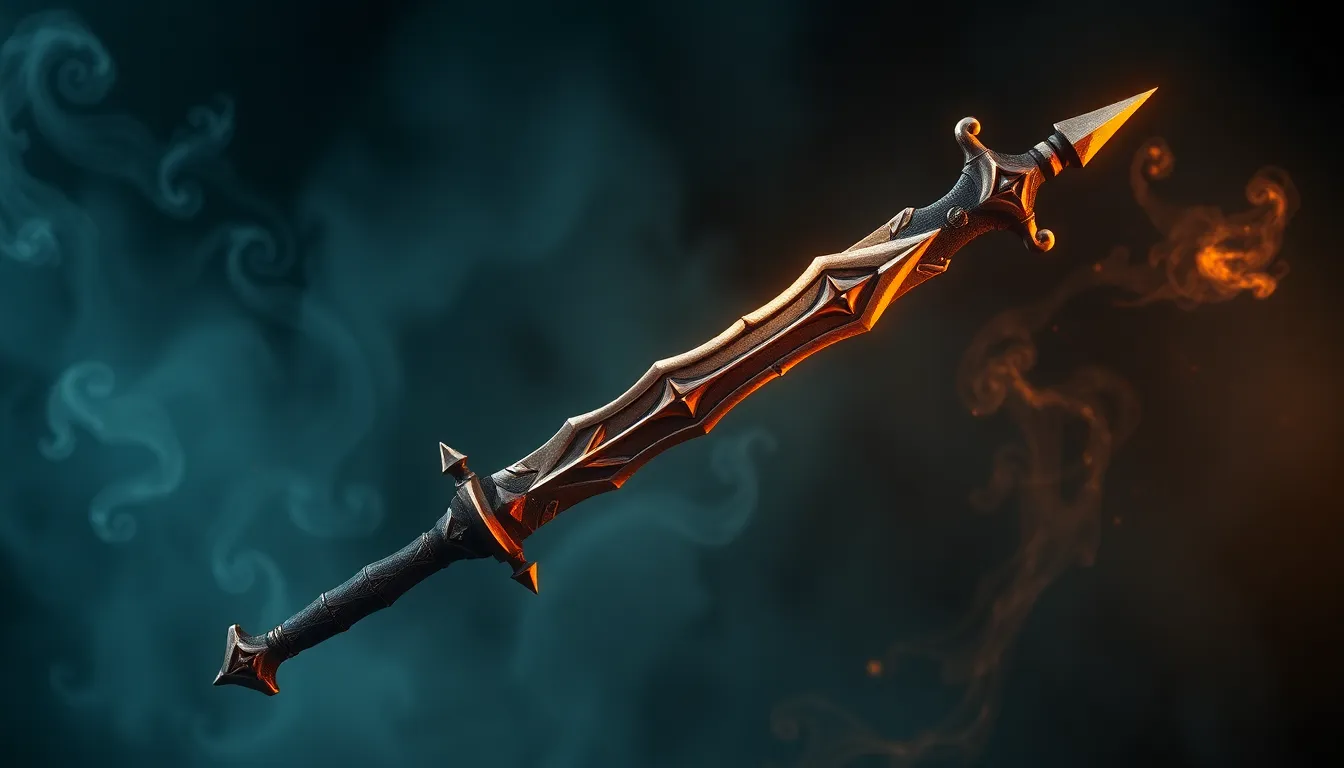The Mythological Arsenal: The Weapons That Shaped Legends!
Introduction to Mythological Weapons
Throughout history, mythological weapons have played a critical role in the narratives and legends of various cultures. These weapons are not mere tools of war; they are imbued with power, symbolism, and a rich history that reflects the values and beliefs of the societies that created them. This article delves into the fascinating world of these legendary arms and explores their significance, origins, and impact on both ancient and modern cultures.
The Origins of Mythological Weapons
The creation of mythological weapons often parallels the historical development of weaponry in ancient societies. These weapons frequently embody the skills and craftsmanship of their makers, serving as cultural artifacts that tell stories of valor and conflict.
In many cultures, the act of weapon crafting was almost sacred, often seen as a divine gift or an art form. For example:
- Metalworking: The process of forging weapons was often linked to gods of fire and craftsmanship.
- Symbolism: Weapons were often symbols of power, justice, or vengeance, showcasing the moral complexities of their usage.
Moreover, the connection between mythology and historical warfare is profound. Myths often served as a vehicle for explaining the origins of certain weapons and the heroes who wielded them, blending fact with fiction to create compelling narratives.
Divine Weapons: Gifts from the Gods
Many mythological weapons are bestowed upon heroes by deities, symbolizing divine favor and extraordinary power. These weapons often come with specific roles or attributes that enhance the hero’s abilities. Some notable examples include:
- Zeus’ Thunderbolt (Greek): A symbol of divine authority and power, this weapon allows Zeus to control thunder and lightning.
- Thor’s Mjölnir (Norse): Known as the hammer of the thunder god, Mjölnir is not only a weapon but also a symbol of protection and blessing.
- Vishnu’s Sudarshana Chakra (Hindu): This spinning disc weapon represents the cycle of time and the power to destroy evil.
In each of these cases, the divine weapons reflect the cultural values and beliefs surrounding power, authority, and the cosmic order.
Heroic Swords and Blades of Legend
Swords in mythology often represent not just physical power but also the moral and ethical qualities of their wielders. Iconic swords like Excalibur, Durendal, and Gram are emblematic of the heroes and legends they are associated with:
- Excalibur (Arthurian): The sword of King Arthur signifies rightful sovereignty and the divine right of kings.
- Durendal (French): The sword of Roland, associated with loyalty and bravery, symbolizes the ideals of chivalry.
- Gram (Norse): Wielded by Sigurd, this sword embodies themes of fate, heroism, and the struggle against dragons.
These swords are not merely weapons; they encapsulate the virtues of their bearers and the values of the societies that tell their stories.
Unique and Unconventional Weapons
Not all mythological weapons fit the mold of traditional arms. Some, like Odysseus’ bow and the spear of destiny, showcase creativity and unique characteristics that influence legendary narratives:
- Odysseus’ Bow: This weapon represents skill and intellect over brute strength, as only Odysseus could string it, symbolizing his rightful place as king.
- Spear of Destiny: Associated with the crucifixion of Christ, this spear carries deep symbolic significance, representing power, fate, and destiny.
These unconventional weapons demonstrate the diverse creativity in weapon design across different myths and highlight the importance of the wielder’s attributes in determining the outcome of their adventures.
Curses and Consequences: The Dark Side of Mythical Weapons
While many weapons are revered, some carry curses or tragic fates that serve as cautionary tales. Examples include:
- Sword of Gryffindor: Though a symbol of bravery, it is also a weapon that can lead to unintended consequences.
- Cursed Blade of King Arthur: This weapon, while powerful, ultimately contributes to the downfall of its wielder.
These narratives often carry moral lessons about the responsibilities that come with power, shaping perceptions of heroism and the consequences of wielding great strength.
Weapons as Symbols of Identity and Legacy
In many myths, weapons serve as powerful symbols of lineage and heritage. For instance:
- Ancestral Blades of Samurai: These swords embody family honor and the warrior’s duty.
- Scythian Swords: Often passed down through generations, they represent cultural identity and legacy.
The impact of these weapons on personal identity is profound, often serving as a reminder of one’s heritage and the values passed down through generations.
The Influence of Mythological Weapons on Modern Culture
Mythological weapons have permeated contemporary media, influencing films, literature, and video games. Their iconic status has led to a resurgence of interest in ancient legends through modern storytelling. Examples include:
- Film adaptations: Movies often reinterpret legendary weapons, bringing them to new audiences.
- Video games: Titles like “God of War” and “The Legend of Zelda” feature mythological weapons, fostering a new appreciation for these artifacts.
These adaptations not only preserve ancient tales but also introduce their themes to contemporary discussions about heroism and morality.
The Evolution of Mythical Weapons in Contemporary Culture
The evolution of mythical weapons continues as they are reimagined in modern contexts. Contemporary creators often draw inspiration from these legendary arms, integrating them into modern narratives while retaining their symbolic significance. This fusion of old and new reflects the enduring nature of these myths and their relevance in discussing power, identity, and responsibility in today’s society.
In conclusion, the mythological weapons that have shaped legends are more than just tools of combat; they are rich symbols of culture, morality, and identity. Their stories, filled with valor, tragedy, and divine intervention, continue to resonate with audiences worldwide, ensuring that the legacy of these legendary arms lives on.




